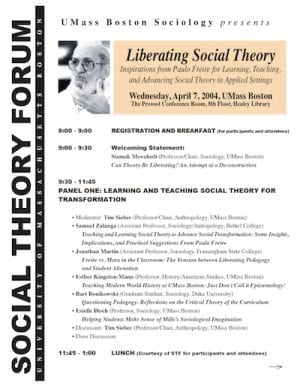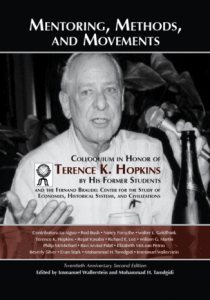Proceedings Journal Article — Questioning Pedagogy: Reflections on the Critical Theory of Curriculum — by Bart Bonikowski
$15.00
By treating schools as black boxes that mass-produce competitive candidates for the labor market, mainstream sociology of education has failed to acknowledge the political, economic, and organizational factors that shape the curriculum toward specific, and often problematic, objectives. To uncritically accept these objectives aslegitimate is to miss a crucial element of the power dynamics that contribute to the very inequalities that concern stratification scholars. This paper examines an alternative paradigm, the critical theory of curriculum, and suggest ways of reconciling some of its claims with the mainstream sociology of educational stratification.
Description
Abstract
Since the classic studies carried out in the 1960s by Blau and Duncan (1967) and James Coleman (1968), sociologists of stratification have made considerable strides in explaining the complex processes that produce inequalities in educational access, achievement, and attainment among different social groups. The strong emphasis on rigorous empiricism that has characterized this tradition has made its findings relevant not only foracademics, but also for educational planners and government policymakers. However, in its preoccupation with educational inputs and outputs,most stratification research has ignored a fundamental feature of American education: the curriculum. By treating schools as black boxes that mass-produce competitive candidates for the labor market, mainstream sociology of education has failed to acknowledge the political, economic, and organizational factors that shape the curriculum toward specific, and often problematic, objectives. To uncritically accept these objectives aslegitimate is to miss a crucial element of the power dynamics that contribute to the very inequalities that concern stratification scholars. This paper examines an alternative paradigm, the critical theory of curriculum, and suggest ways of reconciling some of its claims with the mainstream sociology of educational stratification.
Recommended Citation
Bonikowski, Bart. 2004. “Questioning Pedagogy: Reflections on the Critical Theory of Curriculum.” Pp. 41-50 in Liberating Social Theory: Inspirations from Paulo Freire for Learning, Teaching, and Advancing Social Theory in Applied Settings: Proceedings of the First Annual Social Theory Forum, April 7, 2004, UMass Boston (Discourse of Sociological Practice, Vol. 6, Issues 2, Fall 2004). Issue Guest Editor: Mohammad H. Tamdgidi. Sociology Department, UMass Boston.
Read the Above Publication Online
You can read the above publication free-access online, by clicking the PDF icon below.







